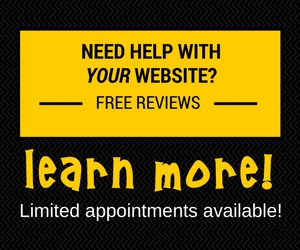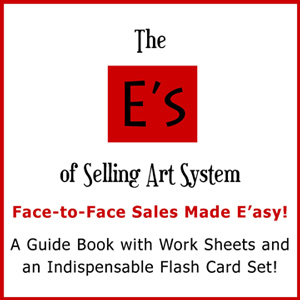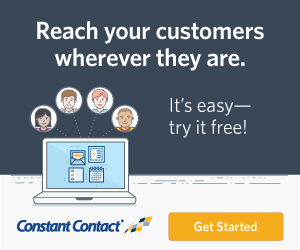Do you “library” anymore?
There was a time when the only way to learn was by being in a classroom or reading a book. You might gain gardening tips by talking over the fence with a neighbor or learn how to knit from that favorite Auntie. Beyond that, it was hard to learn anything new without turning to traditional means.
And by traditional, I mean reading a book; printed on paper, mass produced, and distributed to libraries and book stores. (You remember those, right?) Self-publishing was rare. Stores and libraries had no room in their budgets for anything outside of the system.
Fair or not fair, this system assured a certain “quality” of information was trickling into print. Publishing books, including non-fiction “how-to” or advice books, required significant up-front financial commitment. Publishers wanted books by authors they could “sell”.
Today we Google it. But are Page One results valid or useful?
Before the internet, it was very hard to have a business of any kind. Specialized services providers like a lawyer, accountant, financial expert or marketing/public relations firms were usually in offices somewhere. They had a significant investment in their own businesses and credentials to support their worthiness. It took considerable effort and upfront money to build and maintain a client base. We consumers were unintentionally sheltered from a lot of hustlers.
Today, anyone can put up a free website and look totally professional in just hours. There is no way at first glance, or even second glance, to assess the credibility of the business behind the coding. Anyone can show a picture of a fabulous office space overlooking downtown San Francisco. Is it their actual office? If it is, did they Photoshop the cityscape into the image? Just sayin’…!
Don’t let “shiny objects” affect your objectivity. Be cynical.
When we Google and click on those Page One results, what are we viewing? Are they the best (especially for our business) or just the result of superior SEO skills or spending money for a paid advertisement?
I am not trying to foster fear, but as you are growing your business, you cannot afford bad business advice or worse: paying for bad information or useless services. For example, before you hire someone to “take over” your social media “campaigns”, you need proof that they understand more than just how to upload a photo to Instagram. Do they understand your industry and your business?
Even testimonials might not be enough. If you are a landscaping business and you are looking at an agency or consultant who works mostly with restaurants, this might not work. Do they understand your market? You need to do some basic screening.
Here are the top Four Things you need to investigate – in this exact order:
- Is this current/relevant information: If you are trying to solve an issue and the blog post or information page is from last year – or even last month in some cases, you will likely get very bad information. Advice on how to set up a Facebook page that was written in 2013 is of zero value. Find a publication date. Is this still even an active site?
- Read the “about page” for the person and/or the company: What is their background, credentials, level of knowledge, and/or relevance to your specific business needs. What gives them the authority to give you advice? (See my blog post on how to create an about page that works.)
- Do they provide a phone number and/or email address: If a “contact us page” is all they provide, this is a crimson red flag.
- Are there testimonials and/or references: In most cases, a testimonial should be a full name, town and business name. I usually include a link to a website so that you can get in touch with my happy clients. If this is a sensitive industry – for example law offices often are restricted – full names are unlikely; testimonials may not exist at all. But a food truck consultant should be able to publish full names and maybe even a picture of the trucks they have advised. Same for a website designer. It’s a win-win!
Bonus tip: There should be a blog or email sign-up or both. This is their way of reaching out to bring you more information in the future. If they are not actively reaching out, they are not professionals. Having a Facebook page (with less than a 5% reach today) no longer counts as “actively” reaching out. (Did you know you can buy likes and followers? Don’t be wowed by numbers alone.)
Free or inexpensive (or really costly!) consultations, online courses, e-courses, and e-books are everywhere.
You can learn a lot by hanging out with potential consulting entities. If you have time, do extra research. Even a five-star recommendation might need screening if you need services your referring friend has never used. Take your time:
- Pick a handful of likely mentors or companies that you want to vet.
- Use the criteria from Four Things List when viewing their websites.
- Learn about them via their inbound marketing outlets: blogs, pod casts, YouTube, emails, webinars, and so forth.
Stay signed-up for the emails and blogs even once your choice is made. If they passed all the tests they can be a long-term resource or be someone you might need to hire in the future. Or, they may just give you a piece of advice in their next email and solves a problem you’ve struggled with for weeks. If you like their style and you get free advice in an email, it’s a win-win.
So why should you trust what I have written here?
I am proud of you (and me, too!) if this is your question! This post has already worked! Hooray!
I do want you to be skeptical, but please stick around: sign-up for my emails and blog posts, attend my webinars or seminars and check out my site. Read my testimonials. I think you will find I meet all the criteria on the Four Things List!







Trackbacks/Pingbacks